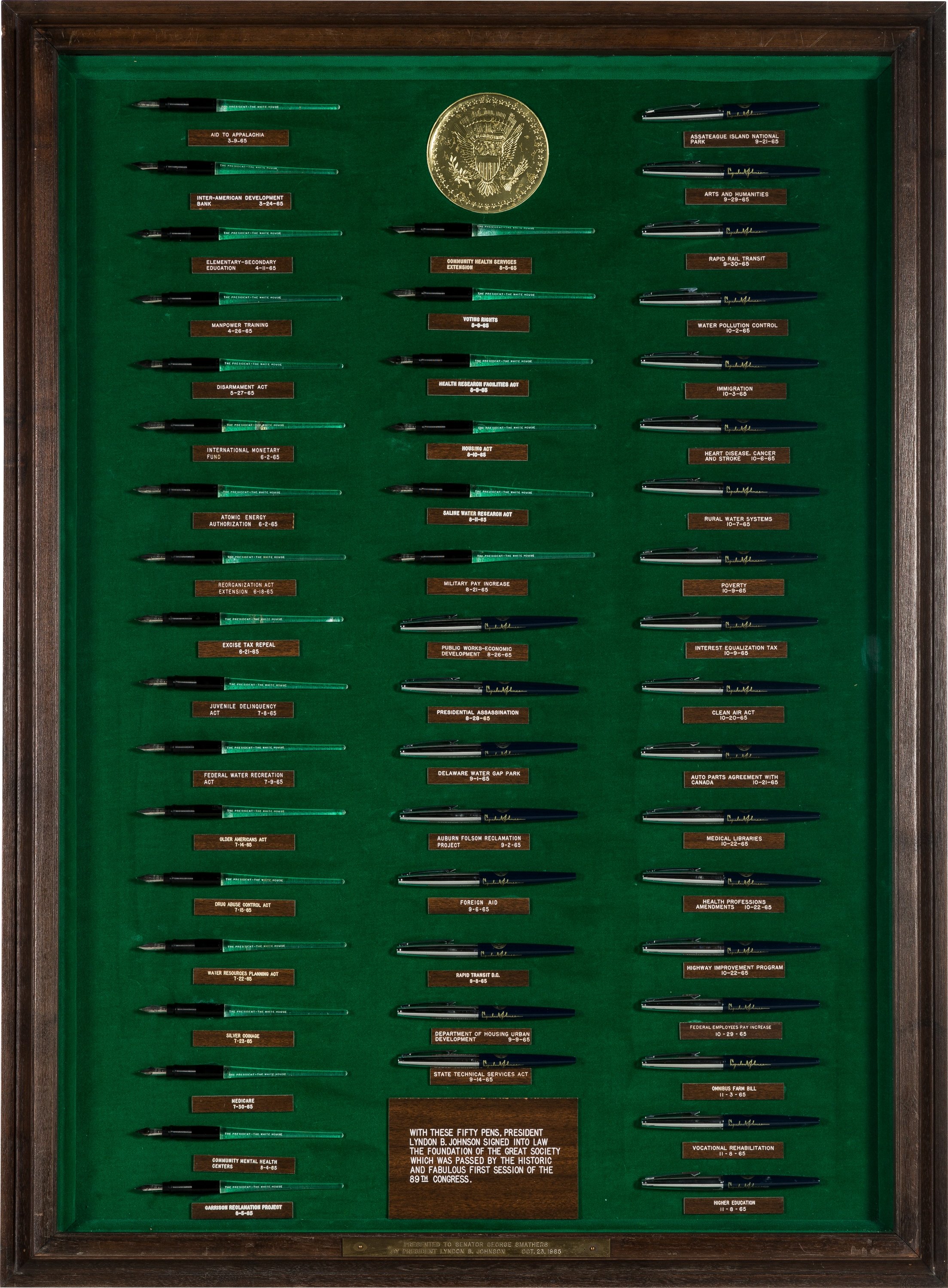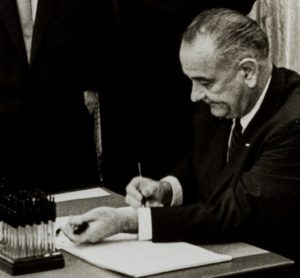
By Jim O’Neal
Whether Lyndon B. Johnson intended to run a second time for the presidency (after his 1964 election) is uncertain. Many of his predecessors had made it clear that one elected term was enough.
Theodore Roosevelt made a campaign promise not to run again for president and regretted it so much that he later ran anyway (in 1912). Rutherford B. Hayes never intended to run more than once (and was happy he hadn’t), and neither did Harry Truman or Calvin Coolidge. Except for TR, these men were no longer popular by the end of their first elected term, and it most likely would have been a waste of time.
So it was with LBJ. On March 31, 1968, he took the nation by surprise when he announced abruptly in a televised address from his office, “I shall not seek, and I will not accept, the nomination of my party for another term as your president.”
Johnson had even spoken of resigning, but if anything deterred him, it was the fear of losing his “Great Society” programs in Congress. Even the media-fueled support for Robert Kennedy was threatening, because Johnson never trusted him and was leery of his lack of power with Congress to be sure the programs got enacted. Johnson cared more about his agenda than the presidency.

Then, shortly after his retirement speech, came the assassinations of Dr. Martin Luther King Jr. (April) and Kennedy (June), which stirred even more violence in the streets. The military was on stand-by and ready to pour into Washington if rioting was too much for the police. For the man in the White House, the outside world was a horror show and the idea of returning to his ranch grew more appealing. A long-time colleague from the old days, Congressman Jack Brooks, said the president did not seek reelection because he “kind of wanted to get back home,” adding for those who might not understand, “It’s not so bad out on the ranch, you know.”
Some presidents depart the White House invigorated, but most leave exhausted. For LBJ, the office had drained his vigor and confidence. He also believed that history would never give him credit for achieving the most powerful social agenda since Roosevelt’s New Deal. It was Johnson’s political skill that made it happen, not JFK, but Johnson believed that somehow the applause would inevitably go to his more popular predecessor. Sadly, he was right, but in recent years, a more balanced narrative has evolved.
Republicans nominated Richard Nixon in August 1968 and the Democrats chose VP Hubert Humphrey. LBJ did not attend the convention to share Humphrey’s triumph since he didn’t want to add any Vietnam War baggage to the ticket. During the campaign, the war flared on and LBJ was still impassioned to end it. On Oct. 31, just days before the election, he even announced a halt to the bombing, but it was too late.
On Jan. 14, 1969, President Johnson delivered his final State of the Union to Congress. It was strong, pragmatic and well-received by his old Senate colleagues – and in a venue where he was very comfortable.
Then it was time to pack up and head back to Texas.
 Intelligent Collector blogger JIM O’NEAL is an avid collector and history buff. He is President and CEO of Frito-Lay International [retired] and earlier served as Chairman and CEO of PepsiCo Restaurants International [KFC Pizza Hut and Taco Bell].
Intelligent Collector blogger JIM O’NEAL is an avid collector and history buff. He is President and CEO of Frito-Lay International [retired] and earlier served as Chairman and CEO of PepsiCo Restaurants International [KFC Pizza Hut and Taco Bell].
